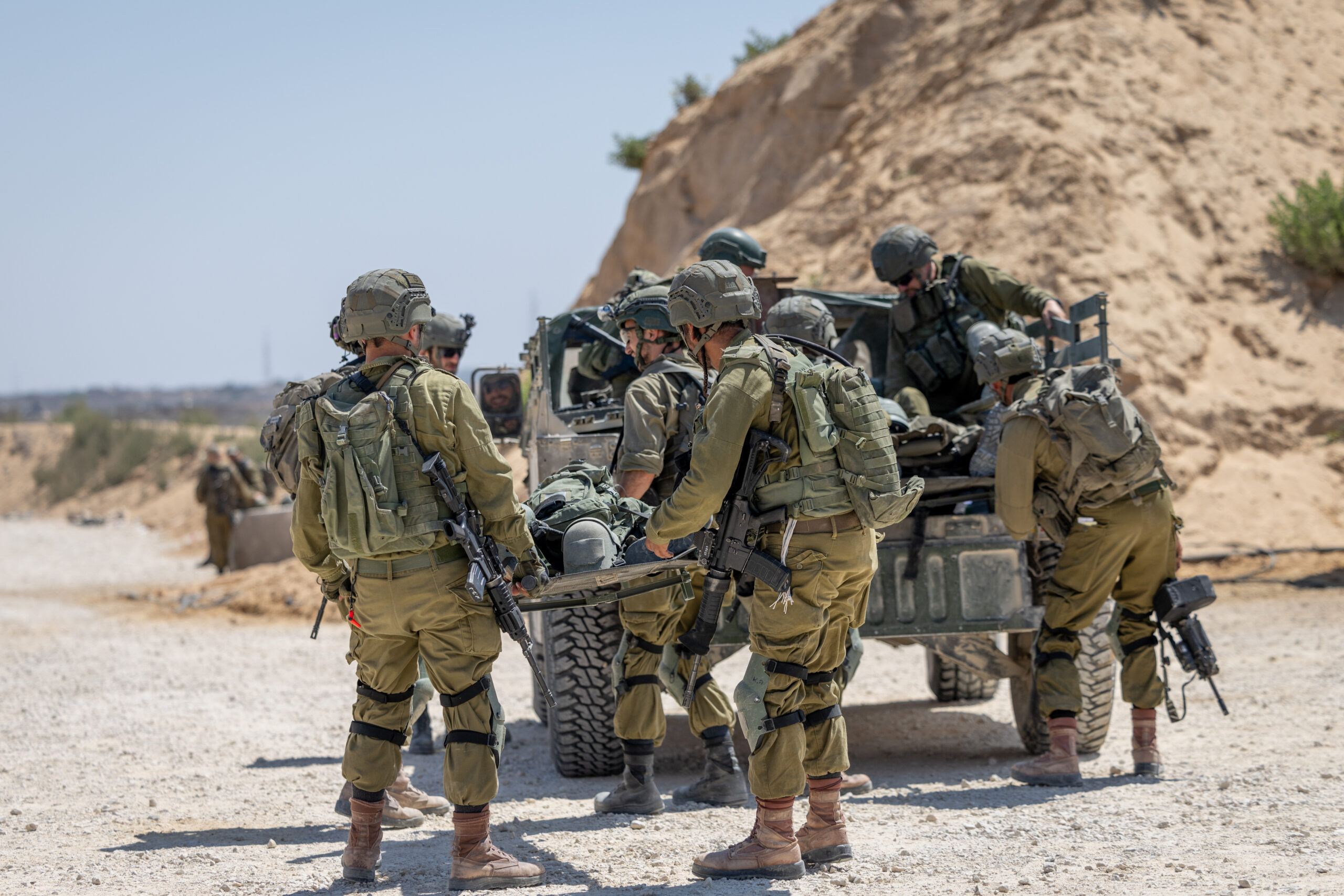Shooting Attack in Samaria Leaves One Injured
A young Israeli man sustained minor injuries after an assailant opened fire on civilians near Adei Ad in the Binyamin region, according to the Israel Defense Forces.
Emergency medics from Magen David Adom were dispatched to the scene following reports of gunfire along Route 458, close to Gideon Junction. They treated a 20-year-old man with a light head wound before transferring him to Hadassah Medical Center in Jerusalem.
Conflicting accounts initially emerged about the incident. Some reports claimed a masked attacker targeted two Israeli shepherds, while others suggested the victim may have been struck by rocks. The group Rescuers Without Borders noted that the injured man was hurt while grappling with the shooter, who reportedly managed to fire only once before his weapon jammed.
Security forces immediately launched searches in nearby villages, including Al-Mughayyir, in an effort to locate the suspect.
Local leaders described the outcome as miraculous. Israel Ganz, head of the Binyamin Regional Council, stressed that the attempted ambush could have ended far worse. He praised local farmers for their role in safeguarding the region and reiterated his call for Israel to formally apply sovereignty throughout Judea and Samaria.
Defense Minister Katz Mobilizes 60,000 Reservists Ahead of Gaza City Operation
Israeli Defense Minister Israel Katz has authorized the mobilization of an additional 60,000 reservists and extended the service of 20,000 others as the IDF prepares for a major campaign in Gaza City.
During a visit to Southern Command headquarters, Katz reviewed operational plans alongside IDF Chief of Staff Lt. Gen. Eyal Zamir. The next phase of the war, codenamed Gideon’s Chariots, is expected to focus on seizing Hamas’s stronghold in Gaza City in order to break the organization’s hold and move toward ending the conflict.
“This is the time to call upon our reservists and regular forces to finish the mission — to defeat Hamas, bring our hostages home, and secure Israel’s future,” Katz said. He emphasized that soldiers’ safety remains a top priority while ordering commanders to use full force against enemy fighters.
With the new call-up, more than 130,000 reservists will be on active duty. The mobilization is expected to begin in early September, following approval from the Knesset’s Foreign Affairs and Defense Committee earlier this week. Military planners anticipate the operation could last around two months, relying mainly on regular units, while reservists fill roles in other sectors.
Before the assault, between 800,000 and 1 million civilians are expected to be evacuated southward to the al-Mawasi humanitarian zone in Rafah. Expanded medical facilities and aid distribution centers will be set up, with U.S. support for scaling humanitarian assistance.
Meanwhile, Israeli forces have already intensified operations around Gaza City. In Jabalia, the Givati Brigade has been dismantling underground networks and eliminating fighters. Evacuation orders have been issued in several areas as battles continue.
Separately, troops in Khan Yunis repelled an attempted infiltration by more than 15 armed militants. The attackers fired small arms and anti-tank missiles at an IDF outpost, wounding three soldiers. In the ensuing clashes, supported by air strikes, 10 of the assailants were killed.
Pentagon Requests $3.5 Billion to Replenish Weapons After Israel Operations
The U.S. Department of Defense has submitted an emergency request for more than $3.5 billion to replace missiles and equipment used in recent operations tied to Israel’s defense, Bloomberg reported.
According to internal budget documents, the largest portion of the request — about $1 billion — is earmarked for new Standard Missile-3 interceptors. Each of these long-range missiles costs between $9 million and $12 million and is produced by RTX Corporation in Virginia. Additional funds would cover Lockheed Martin’s THAAD interceptors, radar upkeep, ship maintenance, and the transport of munitions.
The request builds on the $14 billion Israeli Security Supplemental Appropriations Act passed in 2024, which replenished U.S. stockpiles and funded missile defense cooperation with Israel. Pentagon officials described the new request as essential for sustaining U.S. Central Command’s operations conducted in coordination with Israel against Iran and its regional proxies.
The urgency stems from last year’s large-scale Iranian attack, when over 300 missiles and drones were launched at Israel on April 13, 2024. Most were intercepted by a joint defense effort involving the U.S., Israel, and allied militaries. U.S. Navy destroyers stationed in the Mediterranean launched SM-3 missiles, while Army units deployed THAAD batteries.
Among the Pentagon’s specific requests: $204 million for THAAD missiles and $9.2 million to repair key radar systems after unexpected equipment failures. These requests are in addition to the $4.2 billion in weapons Washington already supplied to Israel between late 2023 and mid-2024.





